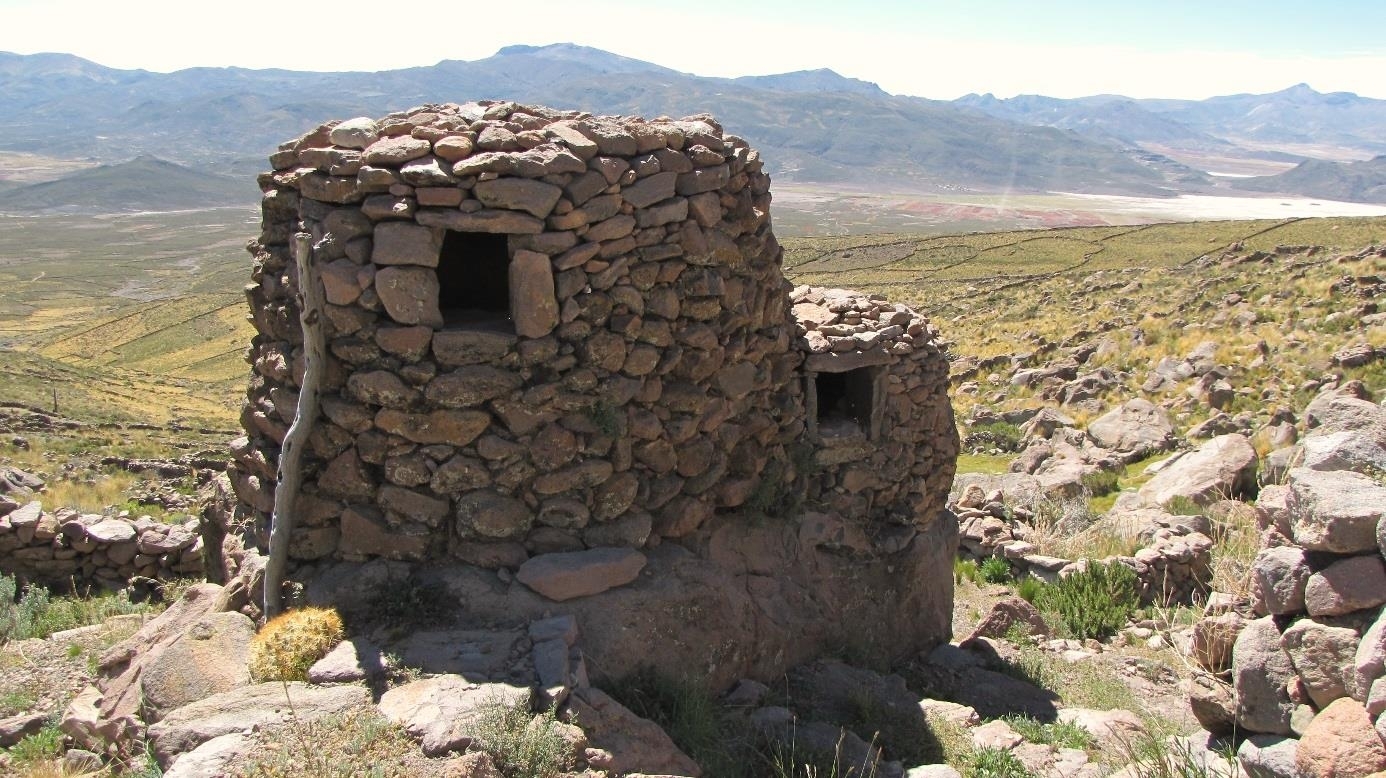Latin America
Related: About this forumThe lost quinoa civilisation: Tough mountain people of the Andes created a classless society
The lost quinoa civilisation: Tough mountain people of the Andes created a classless society
People living in southern Bolivia between the 13th and 15th centuries developed a unique agricultural system.
By Aristos Georgiou
December 20, 2017 19:00 GMT

An ancient granary in southern Bolivia. P. Cruz/CONICET
A new study has highlighted the remarkable ingenuity of a little-known Andean civilisation, in what is now southern Bolivia, which thrived between the 13th and 15th centuries despite harsh climactic conditions.
Researchers investigated a number of archaeological sites located more than 3,700 metres above sea level in the altiplano region where the climate was especially cold and dry during the period 1200-1450, making the growing of crops very difficult.
Previous studies documenting the people of the Andean highlands in this period have suggested that a lack of major irrigation systems meant crop yields were low, causing societies to collapse.
In addition, a catastrophic volcanic eruption of the Samalas volcano in Indonesia in 1257, caused drops in temperatures and rainfall around the world, making life even harder for the Andeans.
More:
http://www.ibtimes.co.uk/lost-quinoa-civilisation-tough-mountain-people-andes-created-classless-society-1652373
Anthropology:
https://www.democraticunderground.com/12293511
Judi Lynn
(160,537 posts)Unexpected agricultural production allowed pre-Hispanic society to flourish in arid Andes
December 20, 2017, CNRS

Aerial view of the archaeological site of Murmuntani. Credit: B Roux, L'Avion Jaune
Six hundred kilometers south of Lake Titicaca and more than 3700 m above sea level, the Intersalar region, between the two large salt lakes of Uyuni and Coipasa, is dotted with fields of quinoa and numerous communities. Today, this region is the main producer of quinoa exported throughout the world. Close to these villages, numerous archaeological settlement sites bear witness to an ancient human occupation, dating from between the 13th and 15th centuries. Within an area of 60 x 40 km, the researchers studied 48 sites, at which they identified more than 4500 archaeological granaries that were used for quinoa storage. But was the climate at that time similar to the current climate? All climate proxies agree and characterize the period from 1200-1450 CE as dry. Within this drier time interval, the rise of rainfed agriculture in the southern altiplano coincided with a catastrophic volcanic event, the eruption of the Samalas Volcano in Indonesia (1257 CE), which initiated climatic changes lasting several decades, with drops in temperature and precipitation on a global scale.
"The massive success of agricultural production in such an unfavorable environment is very surprising," says Richard Joffre ecologist at the CNRS. "It can only be explained by the development of very specific and detailed environmental knowledge that aimed to save water and avoid frost, and by the mastery of a set of agricultural practices by this pre-Hispanic society. Many micro-terraces are discernible. We mapped more than 1500 hectares of them. Moreover, very few traces of irrigation systems have been found. Production here was based on an unirrigated agricultural system, something remarkable in these arid conditions."
Moreover, according to Pablo Cruz, an anthropologist with CONICET, "the distribution of granaries at the sites and the management of agricultural land all indicate a non-centralized agrarian system. We found no material signs of the centralization of power or the presence of a governing elite."
Thierry Winkel, an ecologist with the IRD, points out "that similar production systems continue to be employed in the indigenous communities of Bolivia's southern altiplano today, providing quinoa producers social and productive resilience in the face of current climate and socio-economic changes..."
Read more at: https://phys.org/news/2017-12-unexpected-agricultural-production-pre-hispanic-society.html#jCp